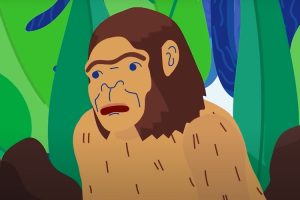Theory of Mind
Developmental psychologist Uta Frith on autism, social interaction, and the difference between mentalizing and...
What do social neuroscientists study? What are some of the methods used in social neuroscience? Is our brain responsible for how we react to people who are different from us? Richard Clarke Cabot Professor of Social Ethics at Harvard University, Mahzarin Banaji, describes the frontiers of the new discipline.
Psychologists are people who study how the mind works. How do we normally study the mind? We study it by observing behavior and measuring behavior. I have to click a key on a keyboard, I have to answer a question, you might even measure how much do I smile, how much do I frown, which muscles are moving. These are all different ways that we use to try to find out what’s going on inside, because this is not transparent, it is locked in a nice box and we have to figure out in the science of psychology what is that thing between our ears doing. And it is a very hard job. It is incredibly hard to figure out what are the right inferences.
We think about other people in a very particular way, and we reserve certain regions of the brain to do the work to try to understand why this person did something or why did they do something, so if I ask you a simple question, “Which has more strings – a violin or a guitar?”, you’ll think about it and you give me an answer, right? If I say to you, “Who is more likely to carry a hammer – a carpenter or a lawyer?”, you have an answer. It’s based on some factor, some base rate of who is gonna do more. It turns out that our brain does not think these two questions the same way.
Almost nothing is known in social neuroscience, so everything remains to be understood. But I think the big question is really, in a sense, the question of consciousness. At some point our species evolved in a different way, so that we achieved such something that we call “conscious awareness”. We have this property, we can look inside our own minds, and we can try to figure out what’s there, and if we don’t like it we can change ourselves and do something different. No other species has this capacity.

Developmental psychologist Uta Frith on autism, social interaction, and the difference between mentalizing and...

Psychologist Terry Hanley on humanism, creativity of a therapist, and making ethical decisions

The discovery of a 55,000-year-old partial skull in Northern Israel provides new insights into the migration o...